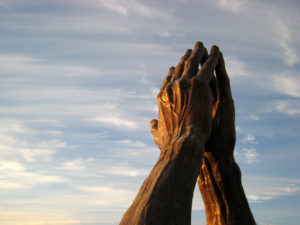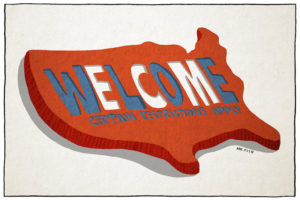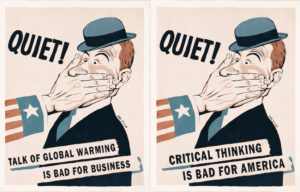Hedges Talks About His New Book on NPR
Chris Hedges stopped by NPR on Thursday to discuss his new book, "Days of Destruction, Days of Revolt," with "Talk of the Nation" host Neal Conan. Click below to listen to the interview. Chris Hedges discussed his new book, "Days of Destruction, Days of Revolt," with "Talk of the Nation" host Neal Conan on NPR.
In his latest book, “Days of Destruction, Days of Revolt,” Chris Hedges visits some of the poorest places in the U.S. — including Camden, N.J., and Welch, W.Va. — to show how the country’s economic system has abandoned many Americans.
Hedges discussed the book and touched on his experiences with the Occupy movement during an interview Thursday with NPR’s Neal Conan.
Some highlights of the interview appear below. Click on the “Read more” link below to listen to the entire interview with Hedges.
Your support matters…NPR:
On why he visited abandoned places for his book
I wanted to show what happens when human beings, communities, when the environment is all forced to prostrate itself before the marketplace. You know, this has become the ideology across the political spectrum, and the consequences — as you see, in all the places you just mentioned — in many other parts of the country are devastating. And essentially, we have undergone a kind of corporate coup d’etat in slow motion. There are very little impediments left against these corporate forces. And what’s happened in these sacrifice zones is now being visited upon larger and larger segments of the population as we reconfigure the country and maybe perhaps the global economic system into a form of neofeudalism.
On the Occupy movement
I was very involved with the Occupy movement. I think that, at this point, both the Republican and the Democratic Party have become hostage to corporate money and corporate power. I think Citizens United in 2010 was probably the last nail in the coffin. It’s impossible for us to fight against it. There’s a two-tiered legal system, a two-tiered legislative system. Large corporations like Goldman Sachs, they write those laws. … They write, in essence, author the judicial rulings that are handed out because of the influence they have. And I think appealing to those formal mechanisms of power is not working, has not worked.
… I spent … many years as a war correspondent and [I] have seen the poison of violence. And I don’t want to see us go there. Nonviolent, peaceful protests and ability to bring people out into the street to protest against these kinds of conditions is, I think, vital, in essence, to rebuilding the kind of movements that protected working men and women in this country.
Independent journalism is under threat and overshadowed by heavily funded mainstream media.
You can help level the playing field. Become a member.
Your tax-deductible contribution keeps us digging beneath the headlines to give you thought-provoking, investigative reporting and analysis that unearths what's really happening- without compromise.
Give today to support our courageous, independent journalists.





You need to be a supporter to comment.
There are currently no responses to this article.
Be the first to respond.